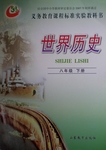题目内容
People ______ at the meeting would have a discussion on pollution.
- A.were present
- B.took part in
- C.join in
- D.present.

 探究与巩固河南科学技术出版社系列答案
探究与巩固河南科学技术出版社系列答案Dear editor,
I am writing to ask what has happened to our young people.They are not as polite or hard-working as my generation(一代人I will give you two examples.
Last Friday, I got on the underground at 9:15 a.m. It was very crowded so there was no free seat.There were some boys sitting on the seats near me.I didn't know why they were not at school.They were talking and laughing loudly. It was difficult for me to read my newspaper with all the noise.At the next stop, a pregnant(怀孕的)woman and her daughter got on with lots of shopping bags.I expected the boys to let them sit down.They saw the woman but they did nothing.I had to ask them to give the woman and her daughter seats. They did so but gave me a rude look.
Last Saturday, I had dinner with my friend’s family.I was glad to see his children, who I hadn't seen for ten years.During the dinner, I started talking about world politics with the children.It soon became clear that they didn't know much about it.They couldn't tell me the name of the King of Spain or President of Italy.All they knew about was the Internet or which singers were the most beautiful.In my days, students knew the kings, the queens and the presidents of every country in Europe.
I worry about the future of Germany.How could these young people become good workers and parents? They sit around McDonald's after school instead of going to the library like I did at their age.Maybe they have too much money.Perhaps some readers can give us some ideas about what to do with this “lost generation”.
Yours sincerely,
Frantz Vogts.
1.Mr. Vogts writes this letter to the editor to _______.
|
A.show how rude the boys were |
|
B.express his worry about his friend’s children’s future |
|
C.show how lazy young people nowadays are |
|
D.complain the way some young people acted |
2.When Mr Vogts met the boys on the underground , he_______.
|
A.knew there was no hope for him to get a seat |
|
B.felt he would be in trouble |
|
C.thought they should have been studying instead of staying there |
|
D.expected that they would get off at the next stop |
3.Mr Vogts was disappointed at the dinner because _______.
|
A.he was not politely treated |
|
B.he had different opinions on the world politics from his friend |
|
C.the children cared more about the Internet than he |
|
D.the children did not know much about world politics |
4.By saying “lost generation”, Mr Vogts refers to ________.
|
A.the fact that he is angry with young people today |
|
B.the people at his age |
|
C.his worry about these young people |
|
D.today’s young people |